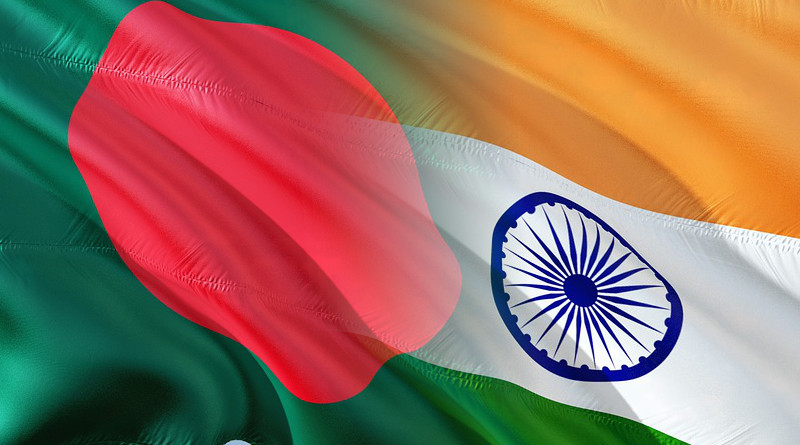Among the many lessons the Bangladesh crisis offers India, the role of public sentiment stands out as especially significant. Despite its centrality, this aspect received far less attention than it warranted. Political and foreign policy analyses were dominated by the complexity of the crisis and the institutional and policy failures it exposed. What was missing from these discussions, particularly around India’s sudden confrontation with the crisis and its scramble to recalibrate its geopolitical calculus, was an examination of what the crisis truly revealed about India’s preparedness to engage with the agency and potential of public sentiment.
Thus, it is crucial to bring this perspective into focus, shedding light on what India overlooked in the unfolding crisis and the lessons that can be drawn from its missteps, mismatches, and misjudgments.
India’s Missed Signals
India’s failure to anticipate the growing discontent in Bangladesh under Sheikh Hasina’s rule points to a deeper issue: the assumption that foreign policy is chiefly about government-to-government relations, with public sentiment sidelined. In reality, the crisis has underscored a crucial lesson: No matter how cordial these ties may appear, they are ineffective without the backing of the domestic public. Public sentiment is not simply noise or temporary disruption; it can signal deeper, long-term trends that affect national stability. Far from being inconsequential, domestic opinion plays a vital role in regional stability, security, and diplomatic relations across South Asia.
However, whether or not a misguided belief that the public lacked the coherence and understanding to impact statecraft resulted in this oversight, the outcome remains: Sheikh Hasina is now out of power, and Bangladeshis are increasingly blaming India for their suffering over the past decade under the increasingly autocratic rule of the Awami League. It is widely believed that India has supported the Hasina regime, championing it on the international stage, promptly acknowledging contested elections, minimizing concerns about its authoritarianism, and steadfastly defending its policies.
India must have been prepared to avoid simplistic explanations for the current crisis, such as claims of the “Islamization of Bangladesh” or the notion of a “U.S. or Chinese hand in triggering a coup.” While it is true that India faced a potential redefinition of the security scenario in the region, particularly concerning Islamic radicalism or external influences, these narratives risk overshadowing the genuine public discontent arising from Sheikh Hasina’s domestic policies and the negative perceptions of India that have crystallized over more than a decade of her tenure. Rather than understanding a nuanced perspective of how Islamic fundamentalist forces within Bangladesh might exploit these popular grievances to their advantage and to India’s detriment, understanding the influence of these forces will provide India with a clearer perspective on securing its own security and fostering regional stability.
Unfortunately, people-to-people ties have been badly damaged, thanks to the Indian media, which has been at the forefront of a disinformation campaign. Exaggerated assertions of a “Hindu genocide” are damaging not only people-to-people relations but also negatively impacting India-Bangladesh diplomatic relations. Even worse, the disinformation campaign from the putative independent Indian media has remarkably strengthened the perception of India trying to legitimize the past autocratic ruler Sheikh Hasina and her regime. This perception is easy to concretize, given the preexisting public perception of India’s unwavering support for Hasina’s ruthless and tyrannical regime, despite huge international backlash, particularly from the European Union and the United States.
Lessons and Future Pathways
For one thing, the crisis has shown that overlooking public diplomacy in international relations comes with a cost. In this case, India’s over-reliance on traditional diplomatic channels left it vulnerable to negative public perceptions abroad.
For another, countries in the South Asian region, with unresolved historical grievances and competing social cleavages, are particularly vulnerable as India can benefit from having cordial relations with the foreign public or be harmed by it. This situation thus illustrates that disregarding public opinion can result in costly mistakes and unintended consequences in a region characterized by historical tensions, diverse cultures, and sociopolitical complexities. Bridging this gap is crucial, as it directly impacts India’s national interests, regional stability, and security.
Further, the evolving geopolitical landscape of South Asia underscores the importance of understanding domestic public sentiment and specific public discontent. With recent years marked by governmental instability and political crises, notable examples include the return of the Taliban in Afghanistan following the withdrawal of U.S. and NATO forces in 2021, the political crisis in Sri Lanka in 2022 that led to the ousting of President Gotabaya Rajapaksa, and the ongoing public protests against the military junta in Myanmar since 2021. If anything, these events illustrate citizens becoming more emboldened to challenge and even revolt against the government in power. Therefore, understanding the depth of public sentiment in South Asian countries is crucial for India.
This awareness will enable India to anticipate potential flashpoints and adopt diplomatic nuances in its foreign policy approach. It also provides an opportunity to build trust, reduce mistrust, and foster cooperation. By paying attention to the perceptions and concerns of its neighbors, India can better navigate the intricate regional politics and adopt policies that advance its interests. In this regard, to achieve any positive outcomes in the long run, New Delhi must strive to understand these complexities without blinkers or ideological bias. Only by taking a clear-eyed and balanced approach can New Delhi hope to navigate these troubled waters effectively.
Lastly, it’s high time India recognized the importance of incorporating the critical role of public diplomacy in India’s foreign policy—not as a discrete entity, but as an integral part of it. Diplomacy is no longer a domain reserved for government representatives alone. In a world increasingly shaped by social media and public opinion, overlooking the significance of public diplomacy can result in costly mistakes.

